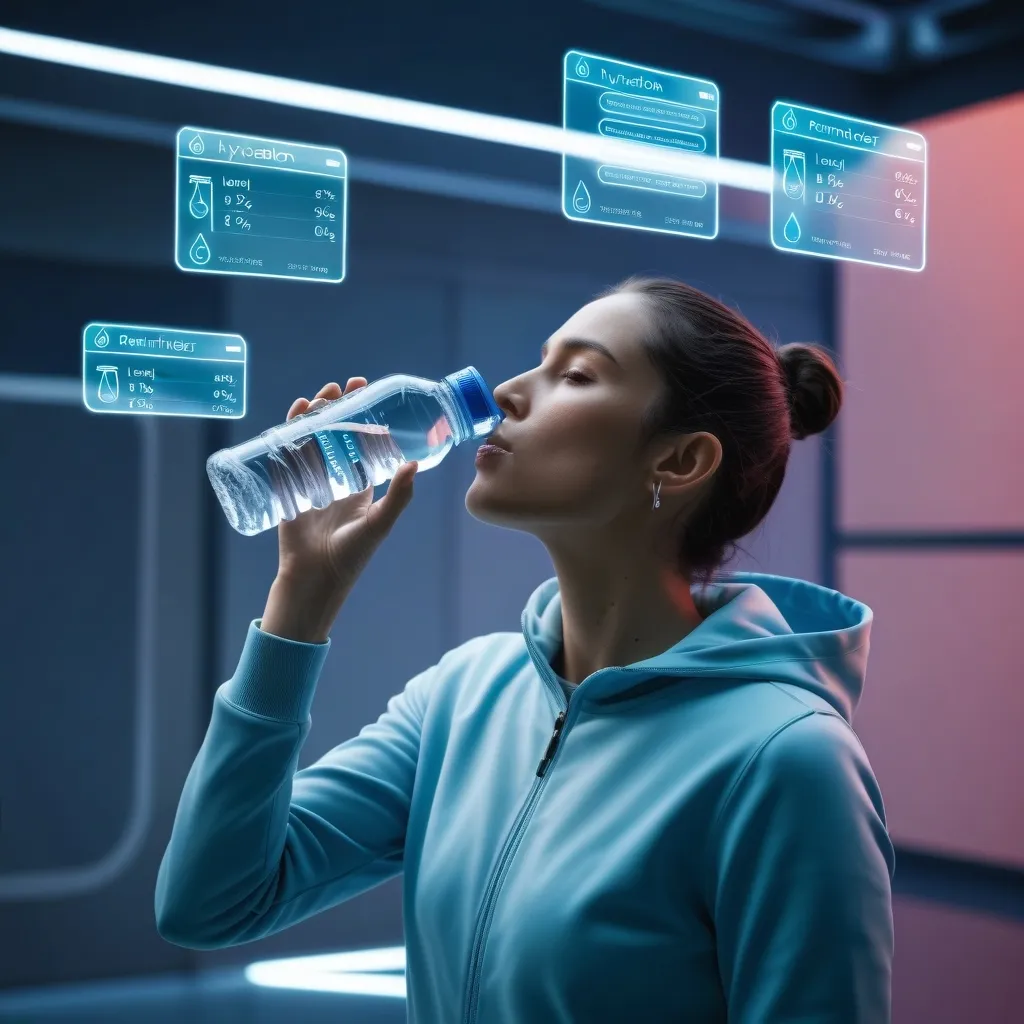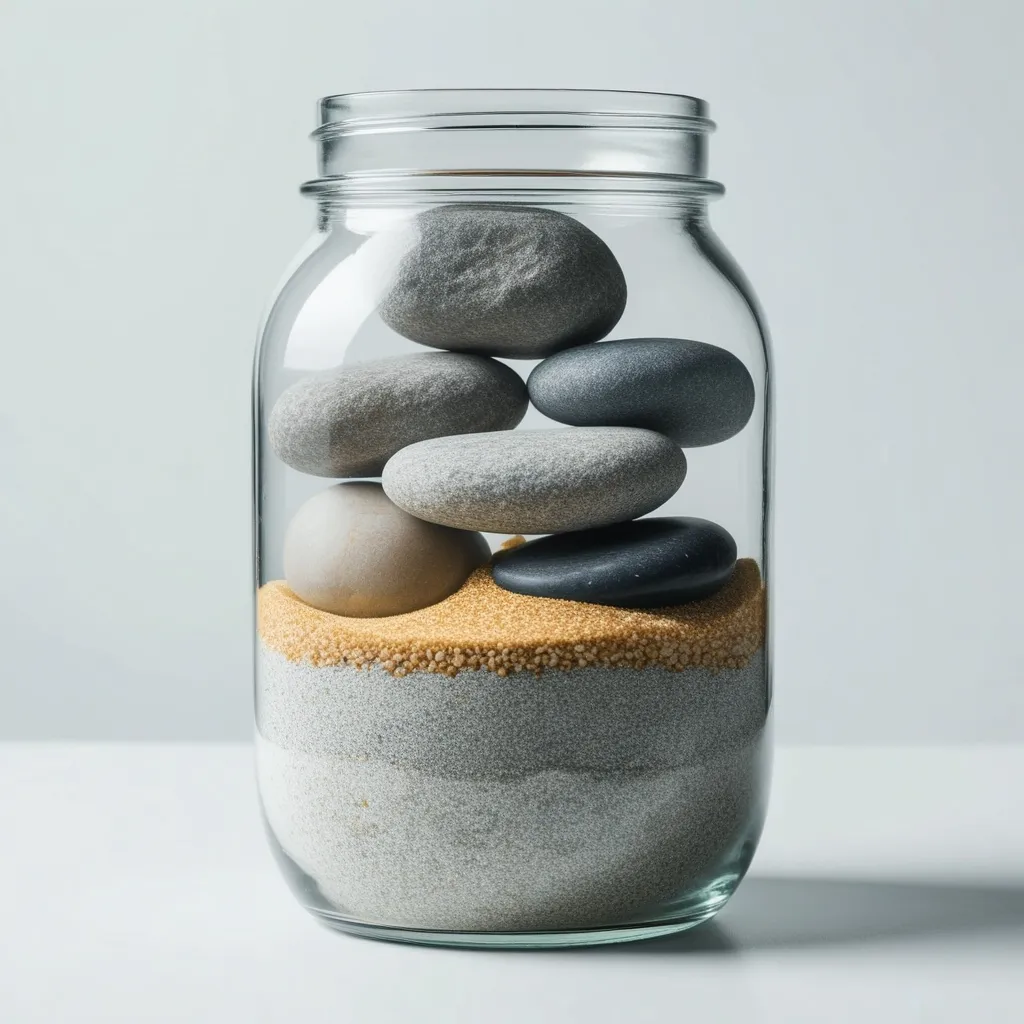Staying Hydrated: The Smart Way to Drink Water
We all know we should drink more water, but did you know that how and when you drink it matters just as much as how much you consume? Welcome to the world of smart hydration, where science meets your daily water intake.
Let’s face it, our bodies are basically fancy water balloons. We need H2O for everything from regulating our body temperature to keeping our brains firing on all cylinders. But here’s the kicker - most of us aren’t drinking enough of the good stuff. That’s where smart hydration comes in to save the day (and your kidneys).
Now, you might be thinking, “What’s so smart about drinking water?” Well, buckle up, because we’re about to dive into the world of high-tech hydration.
Enter the smart water bottle. No, it’s not a bottle that’ll do your taxes for you (although that would be pretty cool). These nifty gadgets are like having a personal hydration coach in your hand. They come equipped with all sorts of fancy tech - sensors, microprocessors, and even wireless connectivity. They track how much you’re drinking in real-time and send that info straight to your smartphone. It’s like Fitbit for your water intake!
But do these fancy bottles actually make a difference? Well, science says yes! Studies have shown that using a smart water bottle can significantly increase how much you pee (in a good way, especially if you’re prone to kidney stones). The main reason? These bottles are like that friend who always reminds you to drink water at parties - annoying, but helpful.
One of the biggest hurdles to staying hydrated is simply remembering to drink. We get it - life gets busy, and sometimes the last thing on your mind is grabbing a glass of water. That’s where these smart bottles really shine. They send you little reminders throughout the day, gently nudging you to take a sip. It’s like having a tiny, well-hydrated angel on your shoulder.
But how accurate are these high-tech hydration helpers? Pretty darn accurate, as it turns out. One study looked at football players (you know, those guys who sweat buckets during practice) and found that a smart bottle with optical sensors was spot-on in measuring how much they drank. We’re talking a difference of only about 1% compared to the old-school method of manually measuring. Not too shabby!
Of course, not all smart bottles are created equal. Some are like that overachiever in your class who always gets straight A’s (looking at you, HidrateSpark 3), while others… well, let’s just say they might need some extra tutoring (we’re giving you the side-eye, Thermos Smart Lid).
But these bottles aren’t just about cold, hard data. They’re also about helping you build better habits. It’s like having a personal trainer for your water intake. They give you real-time feedback and reminders, helping you develop a habit of drinking more water. This is especially clutch for athletes who need to stay hydrated to keep their performance top-notch.
Now, before you rush out to buy the fanciest smart bottle you can find, let’s talk about lifestyle. These bottles might not be everyone’s cup of tea (or water, in this case). A study on college students found that smart bottles didn’t really increase their water intake or improve their health. Why? Well, let’s be real - when you’re in college, water isn’t exactly the beverage of choice. Personal taste and social influences play a big role in what we choose to drink.
And let’s not forget about Mother Earth. While smart bottles can be great for our health, some of them might not be so great for the environment. Take Smart Water, for example. It sounds fancy with its vapor-distillation process and electrolyte infusion, but did you know it takes about 78 calories of energy to produce just one liter? That’s a lot of energy for something that comes out of your tap for free!
So, how can you apply all this smart hydration science to your daily life? Here are some tips that don’t require a degree in rocket science:
Use reminders: Whether it’s a fancy smart bottle or just an app on your phone, set up reminders to drink water throughout the day. Your body will thank you.
Keep track: Start monitoring how much water you drink. You might be surprised at how little (or how much) you’re actually consuming.
Make it a habit: Try to incorporate drinking water into your daily routine. Maybe have a glass as soon as you wake up, or before each meal. Before you know it, it’ll become second nature.
Choose wisely: If you do decide to go the smart bottle route, do your homework. Look for one that’s known for accuracy and reliability. Read reviews, check out studies, and maybe even ask your water-obsessed friend for recommendations.
Consider your lifestyle: If you’re not a big water fan, try to make it more appealing. Add a slice of lemon, try some flavored water enhancers, or experiment with herbal teas. Find what works for you.
In the real world, smart hydration can make a big difference. Athletes can use smart bottles to make sure they’re properly rehydrating after sweating it out on the field. People with kidney stones can use them to increase their fluid intake and reduce the risk of painful stone formation. Even busy professionals can benefit from the reminders to take a water break in between meetings.
At the end of the day, smart hydration is about more than just guzzling water mindlessly. It’s about being intentional with when and how you drink. By using tools like smart bottles, setting reminders, and making hydration a habit, you can boost your overall health and well-being.
Whether you’re a hardcore athlete, a busy parent juggling a million tasks, or just someone trying to be a bit healthier, the science of smart hydration offers practical solutions to help you stay optimally hydrated. It’s not about the fanciest technology or the most expensive water bottle - it’s about creating a lifestyle that incorporates mindful hydration practices.
So next time you reach for a drink, remember that timing and method matter. Your body is a complex machine, and proper hydration is the oil that keeps it running smoothly. By being smart about your water intake, you’re not just quenching your thirst - you’re giving your body the tools it needs to function at its best.
And hey, if all else fails, just remember this: your body is mostly water, so you’re basically a cucumber with anxiety. Keep that cucumber well-watered, and you’ll be golden. Cheers to smart hydration!






